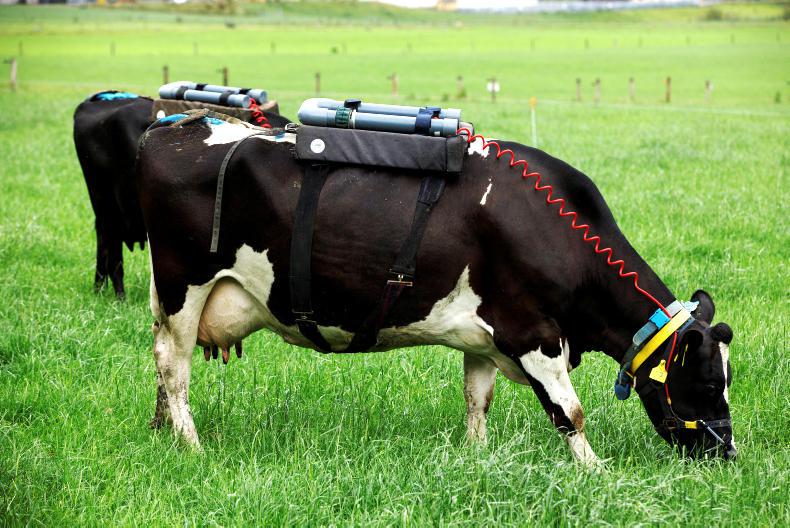A group of world-renowned climate scientists have called on governments to assess long-lived and short-lived greenhouse gases separately when setting emissions reduction targets.
Writing in the scientific journal Nature, the 33 experts state that there is a “high level of agreement on the underlying science of how different greenhouse gases affect global temperature”.
The logic for having separate emissions targets surrounds the length of time that different greenhouse gases stay in the atmosphere.
Methane, which is emitted by ruminant livestock, breaks down in the atmosphere within 20 years.
However, carbon dioxide, which comes from burning fossil fuels, accumulates and has a warming effect for centuries.
The climate scientists point to last year’s sixth assessment report by the Intergovernmental Panel on Climate Change
This means a small cut in short-lived greenhouse gases, such as methane, has the same effect on global temperatures as a much bigger reduction in long-lived gases like carbon dioxide.
The climate scientists point to last year’s sixth assessment report by the Intergovernmental Panel on Climate Change (IPCC).
The report states that the current system used for comparing different greenhouse gases “overstates the effect of constant methane emissions on global surface temperature by a factor of three to four”.
However, the accounting system, known as GWP100, understates the effect of rising methane emissions by a factor four to five times.
Net zero
Crucially, this means that methane emissions from the likes of the agriculture sector do not need to reach net zero for the industry to have no warming effect on global temperatures.
“This does not have to affect any existing or planned NDCs (national targets) or long-term net zero strategies communicated using [GWP100],” the 33 scientists state.
The issue of a separate target for methane has gained significant traction in Northern Ireland, where a final vote on amending a climate change bill is scheduled to take place at Stormont on Monday.









SHARING OPTIONS